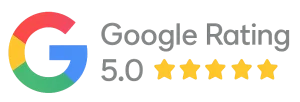Nurse credentialing is an essential process that ensures qualified nurses meet the necessary standards for professional practice. The process involves verifying educational backgrounds, work histories, licensure, and certifications to maintain compliance with state and federal regulations. However, the verification phase of credentialing often comes with significant challenges that can delay the approval process and impact healthcare organizations.
In this detailed blog, we will explore the key verification challenges in nurse credentialing, their implications, and effective strategies to overcome them.
1. Non-Responsive Previous Employers
One of the biggest challenges in nurse credentialing is obtaining verification from past employers. Many hospitals, clinics, and other healthcare facilities operate under high workloads, and HR departments may not prioritize credentialing requests.
Implications:
- Delays in verification can lead to postponed hiring or disqualification.
- Lack of verification may require alternative proof, increasing the administrative workload.
- Credentialing organizations might request multiple follow-ups, prolonging the process.
Solutions:
- Automate Requests: Use credentialing management software to send automated verification requests and reminders to previous employers.
- Leverage Professional Networks: If an employer is unresponsive, reaching out to former supervisors or colleagues for verification can help.
- Provide Alternative Documentation: Pay stubs, W-2 forms, or official job offer letters can serve as alternative verification methods.
- Engage Credentialing Services: Outsourcing verification tasks to third-party credentialing specialists can expedite the process.
2. Educational Institutions No Longer Operational
Verifying a nurse’s academic credentials can be complicated when their educational institution has closed, changed names, or merged with another institution.
Implications:
- Difficulty in obtaining official transcripts and degree confirmations.
- Risk of fraudulent credentials going unnoticed.
- Added burden on applicants to find alternative verification methods.
Solutions:
- Use State Licensing Boards: Some nursing boards maintain educational records and can provide verification.
- Check Accreditation Bodies: Organizations like the Accreditation Commission for Education in Nursing (ACEN) or state nursing boards can verify educational credentials.
- Request Archival Records: Government agencies or other institutions might hold archived records of closed schools.
3. Discrepancies in Employment or Education History
Inconsistent information between what a nurse reports and what verification sources provide can create delays and mistrust.
Implications:
- Inaccurate records can result in denied credentialing.
- Additional time and resources are required to clarify discrepancies.
- Nurses may need to provide further documentation to resolve inconsistencies.
Solutions:
- Encourage Transparency: Nurses should provide accurate and complete information during applications.
- Cross-Check Information Early: Employers should pre-verify documents before submitting credentialing requests.
- Use Multiple Sources for Verification: If one source is inconsistent, cross-referencing with alternative sources like pay stubs, tax records, or personal references can help.
4. International Nurse Credentialing Challenges
Nurses who obtained their education and work experience abroad face additional hurdles during the credentialing process.
Implications:
- Difficulty in verifying foreign degrees and licenses.
- Differences in education and training requirements.
- Language barriers and documentation authenticity concerns.
Solutions:
- Engage Credentialing Agencies: Agencies like the Commission on Graduates of Foreign Nursing Schools (CGFNS) specialize in evaluating international credentials.
- Require English Proficiency Tests: Many states mandate TOEFL or IELTS exams to ensure language competency.
- Verify Through Regulatory Authorities: Contacting the licensing board in the nurse’s home country for verification can help.
5. Background Check and Legal Issues for Nurse Credentialing
Credentialing includes checking criminal records, malpractice claims, and other legal issues, which may delay approval if any red flags appear.
Implications:
- Delays due to extensive background checks.
- Possible disqualification if a nurse has unresolved legal issues.
- Hospitals and clinics may require further investigation, increasing processing time.
Solutions:
- Perform Self-Checks: Nurses should conduct personal background checks before applying.
- Provide Full Disclosure: Transparency about past legal issues and providing necessary documentation can prevent unnecessary delays.
- Seek Legal Counsel: If legal concerns arise, professional legal guidance can help resolve them efficiently.
6. Errors in License and Certification Verification
Errors in verifying a nurse’s licensure or certifications can arise due to incorrect database entries or outdated information.
Implications:
- Delays in credentialing if discrepancies occur.
- Risk of licensing boards providing outdated information.
- Potential for wrongful disqualification due to errors.
Solutions:
- Use Primary Source Verification (PSV): Ensuring direct verification from original licensing bodies.
- Regularly Update Information: Nurses should keep their licensing records current with the state board.
- Use Digital Verification Systems: Platforms like Nursys provide up-to-date licensing verification.
7. Lack of Standardization in Nurse Credentialing Requirements
Different states and healthcare facilities have varying credentialing requirements, making the process complex and inconsistent.
Implications:
- Nurses applying in multiple states face additional credentialing barriers.
- Healthcare organizations must comply with multiple regulatory standards.
- Increased administrative workload for credentialing teams.
Solutions:
- Utilize the Nurse Licensure Compact (NLC): If applicable, this allows nurses to practice in multiple states under one license.
- Develop Internal Standardization Protocols: Healthcare facilities should maintain uniform credentialing standards to streamline the process.
- Educate Nurses on Requirements: Providing detailed guidelines on credentialing expectations can reduce errors and delays.
Conclusion
Credentialing verification is a crucial step in ensuring that nurses meet the required professional and legal standards to practice safely. However, various challenges can cause delays and complications. By leveraging technology, engaging nurse credentialing experts, and maintaining transparent communication, healthcare organizations can streamline the nurse credentialing process while maintaining compliance and efficiency.
At Credex Healthcare, we specialize in providing seamless nurse credentialing services, ensuring that verification challenges are addressed promptly and efficiently. Our team is dedicated to helping healthcare providers maintain compliance while reducing administrative burdens. Contact us today to learn more about our healthcare staffing solutions!








